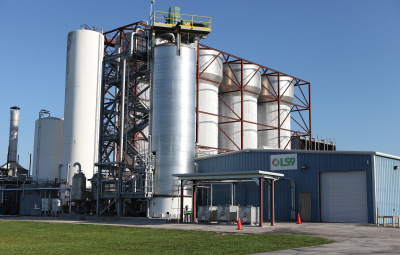Biobased n-butanol producer Cobalt Technologies has been very busy this week with a partnership deal and a production milestone.
The company first announced that it is entering the bio-butadiene space by partnering with two Asian chemical companies to develop a biomass-to-butadiene processing technology, and followed by construction of a commercial-scale biorefinery in Asia.
The partners will also build or license additional plants to support growth in global butadiene demand. The Asian chemical companies is putting into Cobalt through equity investment to support this deal.
The bio-butadiene space is definitely seeing a lot of investments such as the recent JV announcement with Versalis and Genomatica, which I will post later on; INVISTA’s partnership with Arzeda and LanzaTech; Global Bioenergies’ partnership with Synthos; and Amyris’ partnership with Kuraray to develop farnesene-based polymers that can replace petroleum-based butadiene and isoprene feedstock.
According to Cobalt Technologies, the global butadiene market is worth $40bn and it is expected to grow rapidly as automakers seek to meet higher fuel economy standards. Butadiene is a key ingredient in high-mileage “eco-tires,” and is widely used in the manufacture of synthetic rubber and nylon, the company said.
The partnership expects the biomass-to-butadiene technology development to be completed in 2014, with construction of the first plant to follow. Question here is who are those Asian companies (I have to dig from Tecnon OrbiChem’s data on who are currently the top Asian butadiene producers). Another question is specific details of the planned biorefinery in Asia.
Meanwhile, Cobalt Technologies also announced the successful scale-up of its bio-n-butanol at a fermentation scale greater than 100,000 liters compared to the previous 4,000 liter pilot scale. The production run was made at LS9’s Okeechobee, Florida, demonstration facility, and according to Cobalt, it made minimal modification to LS9’s existing aerobic system, highlighting the flexibility of Cobalt’s anaerobic technology and robustness of the company’s biocatalyst.
“The demonstration also provides important validation of Cobalt’s ability to take advantage of opportunities to retrofit or co-locate with existing ethanol plants, whether based on sugarcane or corn, for the production of butanol. The demo supports attractive economics for these deployment models with further value enhancement by replacing food-based sugars with surrounding biomass.” – Cobalt Technologies
LS9 actually started operating its Okeechobee demo biorefinery at 135,000 liter-scale in the third quarter last year producing fatty alcohols and smaller production runs of biodiesel. The last time I reported about the LS9 demo facility in September 2012, it reportedly has the capability for world-scale fermentation but for most part, this facility is being envisioned as a demo and scale-up plant.
“Fermentation scale-up is an expensive proposition and requires the proper facilities and expertise to make an effective run. The need to run trials is also intermittent so it is not cost-effective for many companies in the industry to make the investment in a larger plant. LS9’s Florida demonstration plant was designed to manage a multitude of processes, and with this successful customer run, LS9 has proven it can leverage its state-of-the-art facility and the expertise of its operations staff to work with partners to commercialize renewable products.” – LS9
LS9 said Cobalt Technologies is considering future work at its Okeechobee facility given the success of the initial production run.
 |
| LS9 Okeechobee, Florida, facility |

Discussion
Comments are closed.